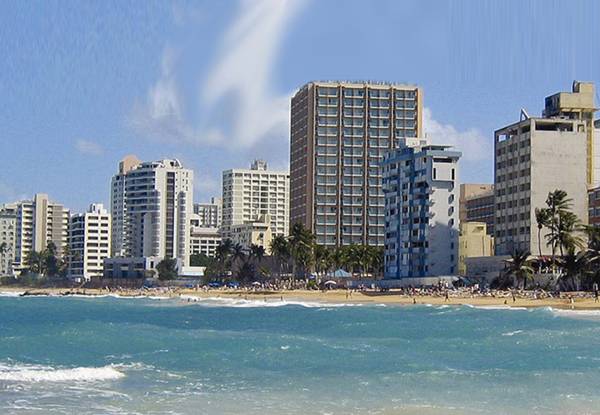Puerto Rico Issues Opportunity Zone Legislation
- Posted: December 19, 2018
- Posted by: Sheila Olson
- Last Reviewed: May 21, 2021

The Tax Cuts and Jobs Act of 2017 included a program to stimulate development in economically disadvantaged areas. Taxpayers who invested capital gains into projects in Qualified Opportunity Zones were eligible for tax incentives, including a reduction and deferment in capital gains taxes. The Opportunity Zones have now been approved, and 95% of Puerto Rico has been designated an Opportunity Zone.
In an attempt to further incentivize development in Puerto Rico, the legislature has submitted Bill No. 1887, The Act for Development of Opportunity Zones and Economic Development of 2018. The Act is expected to generate $600 million in new investment in Puerto Rico’s communities.
What House Bill 1887 does
Quite simply, the bill offers additional local tax incentives and makes a path for domestic taxpayers to take advantage of the tax benefits. Through a combination of tax credits and exemptions, the bill increases the overall return on investment for development in Puerto Rico.
The bill creates a “Priority Projects in Opportunity Zones Committee” made up of the Executive Director of the Puerto Rico Fiscal Agency and Financial Advisory Authority, the Public Chief Financial Officer, and the Public Chief Investment Officer. The committee will fall under the jurisdiction of the governor’s office and is tasked with accepting and evaluating written proposals for development, and crafting rules and regulations for administering the program.
Under the terms of the bill, a Priority Project is defined as a business that is primarily focused on diversification, recovery, and economic and social improvement in a Qualified Opportunity Zone. Investors hoping to take advantage of the tax incentives and credits must submit a written proposal to the Committee identifying their eligible activities for approval.
Tax incentives in HB 1887
Once a project is approved by the Committee, it is eligible for an exemption lasting for a period of 15 years. There will be a flat income tax of 20% on income generated during the term of the exemption. Additionally, no tax or withholding will be applied to any dividend distributions resulting from earnings and revenue from eligible activities as defined by the committee.
Royalties paid to a non-resident party not engaged in the business will be subject to a 20% withholding tax.
For license and property taxes, an exemption of 50% will also be granted. If the Priority Project includes residential housing development, the exemption increases to 90%. Additionally, there will be no construction tax levied on Priority Projects. Interest income generated by financing Priority Projects engaged in eligible activities will also be exempt from income tax.
Finally, there is a 15% transferable tax credit on funds invested in exempted businesses, which can be sold to a third party. This credit will be given priority ranking over other tax credits available in Puerto Rico.
The Act proposes amending Puerto Rico’s tax code to align with the federal tax rules regarding Opportunity Zone projects. In other words, capital gains taxes will be deferred until 2026 to mirror current IRS rules, and there will be a 10% step-up in basis after five years, with an additional 5% step-up to a total of 15% on investments held for seven years.
The code allows new residents to defer capital gains taxes on earnings realized during the non-residency period.
Who is eligible
Any business seeking Priority Project approval must submit a proposal in writing to the Committee. If approval is granted, the business must file an exemption application with the Office of Industrial Tax Exemption.
Businesses currently receiving incentives under the Puerto Rico Film Industry Incentives Act, the Green Energy Incentives Act, the Export Services Act, the Tourism Development Act, or the Economic Incentives Act for the Development of Puerto Rico are not eligible for additional incentives under the Priority Project program.
Disclaimer: Neither PRelocate, LLC, nor any of its affiliates (together “PRelocate”) are law firms, and this is not legal advice. You should use common sense and rely on your own legal counsel for a formal legal opinion on Puerto Rico’s tax incentives, maintaining bona fide residence in Puerto Rico, and any other issues related to taxes or residency in Puerto Rico. PRelocate does not assume any responsibility for the contents of, or the consequences of using, any version of any real estate or other document templates or any spreadsheets found on our website (together, the “Materials”). Before using any Materials, you should consult with legal counsel licensed to practice in the relevant jurisdiction.
More Articles
-
Missing the Mainland? What to Do When You’re Homesick

Read MoreDecember 20, 2021 -
Save Your Money from Inflation by Moving to Puerto Rico

Read MoreJuly 1, 2023



